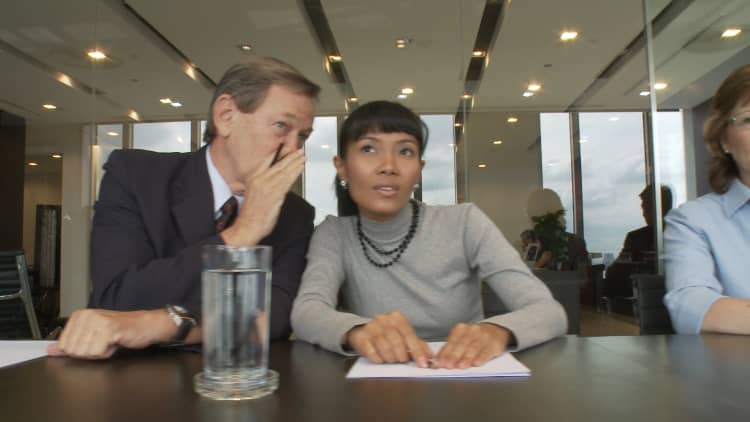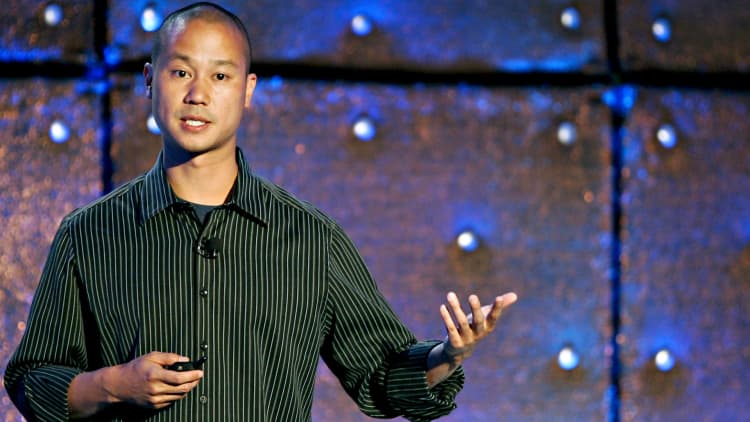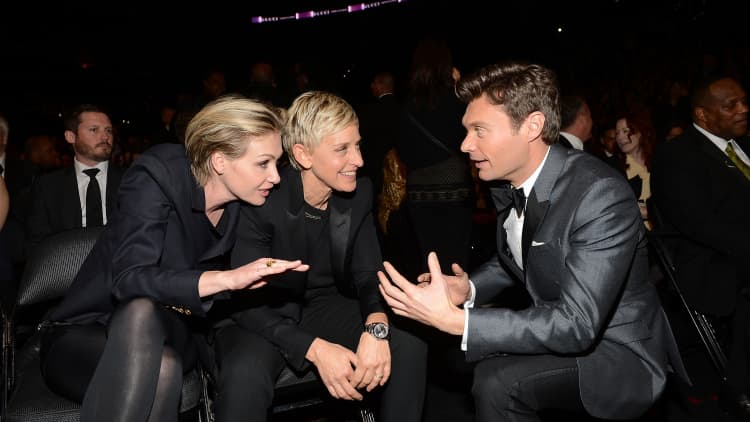The work day can quickly fly by with little done when you're glued to your inbox. In fact, the average office worker now spends 6.3 hours checking both their work and personal messages.
If you ever feel bogged down by incessant emails, consider this advice from Bill Gates, who shared how he remained productive in a 2006 column for Fortune. At the time, Gates was the chairman of Microsoft and also oversaw the Bill and Melinda Gates foundation.
Here are three strategies the billionaire said he used to work as efficiently as possible:

1. Use your monitors strategically
The billionaire's productivity hack started with his desk setup. Gates revealed that his office had very little paper because most of his correspondence took place over email.
This is particularly noteworthy considering that the average executive wastes six weeks a year retrieving misplaced items due to messy desks, according to the Wall Street Journal. A clutter-free desk, according to productivity experts, is key to getting work done because it reduces your stress levels and allows you to focus on one task at a time.
But email can be just as overwhelming as a messy desk, which is why the billionaire used a three-computer system to keep tabs on his messages. On his desk were three computer screens that were "synchronized," so he could drag items from one screen to the next, forming a single desktop.
"Once you have that large display area, you'll never go back, because it has a direct impact on productivity," wrote Gates.
The billionaire then divided his email load by screen. On the left, he viewed his entire inbox, on the middle screen was the specific email he was engaging with and on the right screen was his internet browser.
"This setup gives me the ability to glance and see what new [email] has come in while I'm working on something, and to bring up a link that's related to an email and look at it while the email is still in front of me," Gates said.

2. Set boundaries
It's human nature to want to respond to every email that comes in — or at the very least read them. But doing so eats up a huge chunk of time that could be better spent elsewhere.
One remedy is to select who can and can't message you. While at Microsoft, Gates purposefully made sure to keep his emails to around 100 a day by filtering who could contact him. Only emails from Microsoft personnel, partner companies and people with whom he'd had prior correspondence came directly to his inbox.
Nowadays, most email platforms, such as Gmail and Outlook, have filter settings that allow you to categorize and control your incoming messages. If you're scared of missing an important email — and have someone to help you — you can also follow Gates' strategy and send those external emails to an assistant or secretary who responds on your behalf.
Actor Ashton Kutcher uses a similar approach at his venture capital firm Sound Ventures. Whenever a new company is added to the firm, its founder receives an email outlining who to contact for various tasks, he says. That way, he's not overwhelmed with minute questions and messages that others can answer.
3. Prioritize
Gates is not a fan of writing to-do lists, and neither is self-made millionaire Tony Robbins. To-do lists "make you feel like you're being productive without actually accomplishing anything," Robbins wrote in a recent blog post.
As Microsoft's chairman, Gates used his email, desktop folders and an online calendar to prioritize tasks. "When I walk to my desk, I can focus on the emails I've flagged and check the folders that are monitoring particular projects," he wrote.
In addition, the philanthropist utilized in-box rules and search folders to highlight and group emails based on their importance and content.
Hitting the spam button can also help prioritize certain messages, explains Boomerang CEO and email productivity expert Alex Moore. By marking extraneous emails as spam, rather than just deleting them, your email platform is better programmed to know what content to remove automatically. This frees up the time that you'd spend deleting useless messages.
Since email is the preferred mode of communication in the workplace, we're faced with information overload, Gates asserted in his Fortune article.
"We're at the point now where the challenge isn't how to communicate effectively with e-mail, it's ensuring that you spend your time on the e-mail that matters most," he wrote.
Like this story? Like CNBC Make It on Facebook
Don't miss: How the '90/10 rule' can help you make fewer, smarter decisions



